That's why, with the Institut Elabe, we conducted an unprecedented survey of 14,000 people in 28 countries.
Six major lessons emerged from the survey.
1. The challenge of our resources is universal and therefore stands out as a fight that has to be shared.
In each of the 28 countries surveyed, regardless of the level of development, the objective quality of access to resources and food, the level of pollution of water, air and soil, 84% to 98% of people say that whatever country we live in, our destinies are all linked by the choices we make today about energy, food and fighting pollution.
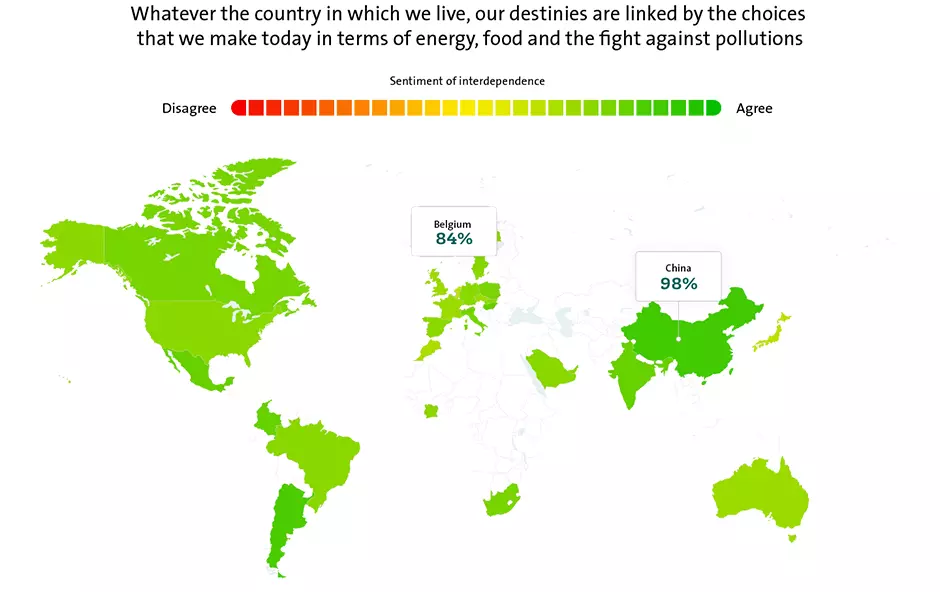
2. The certainty of this solidarity in our future is accompanied by a sense of urgency that crosses borders.
On the five continents, a majority of people in the countries surveyed consider it is necessary to act quickly to tackle the ecological, energy and food challenges (average degree of urgency for each challenge is 6.6 / 10 on a scale of 0 to 10).
The development of the proportion of renewable energies in the energy mix used to cover their country’s needs; air quality; access to good quality, healthy food; sufficient food to cover everyone’s needs; and water quality are the five most frequently prioritized issues
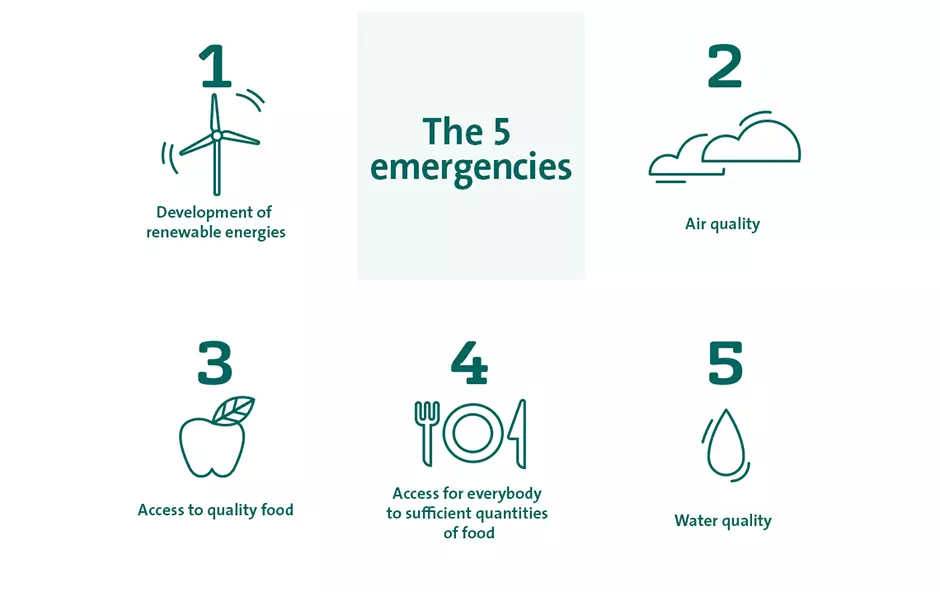
3. Although the need to act is shared, the degree of urgency and priorities for action depend very much on the current situation. Inequalities are glaring, and the contrast between diagnoses striking.
Two extreme scenarios emerge: Côte d’Ivoire and Sweden.
- Côte d’Ivoire stands out because of its current vulnerability; the perception is that it is vital to take urgent action on the three fronts of food, energy and pollution, but is it also characterized by a clear refusal to be fatalistic - a reflection of its confidence in the future.
- Sweden (and its objective situation) offers a striking contrast: it assesses its food, energy and ecological situation very positively, but advocates vigilance without expressing any great degree of urgency. Its confidence in the future is very solid.
Between these two extremes, a multitude of situations and priorities emerge.
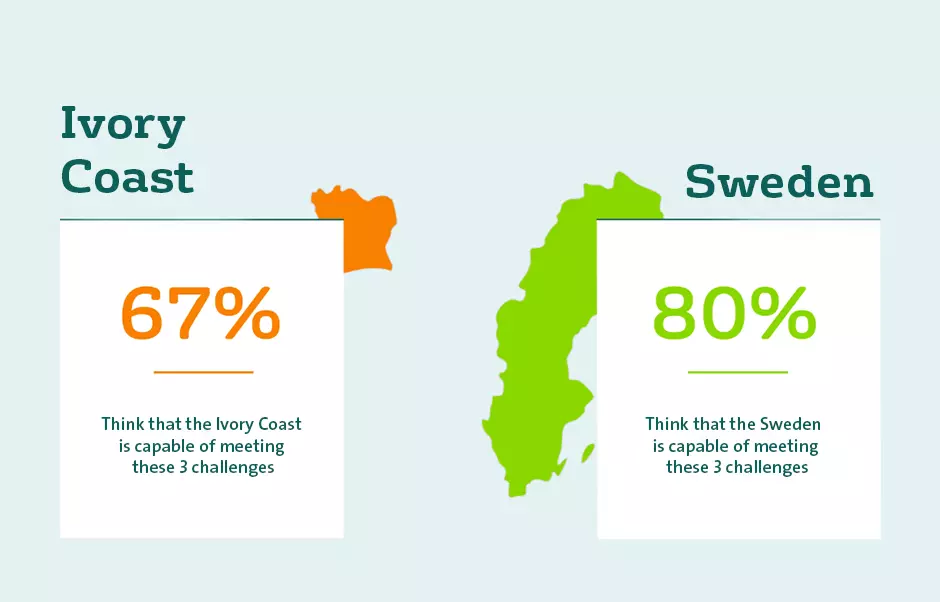
4. Despite this contrast, the world’s citizens share one common attitude: giving up is not an option.
Despite the fears expressed, a majority of the 28 public opinions choose hope - often cautious, resolute in some countries. They believe that their country has the capacity to meet the food, energy and ecological challenges. And as evidenced by people in the Côte d’Ivoire, the most vulnerable countries are by no means the least confident.
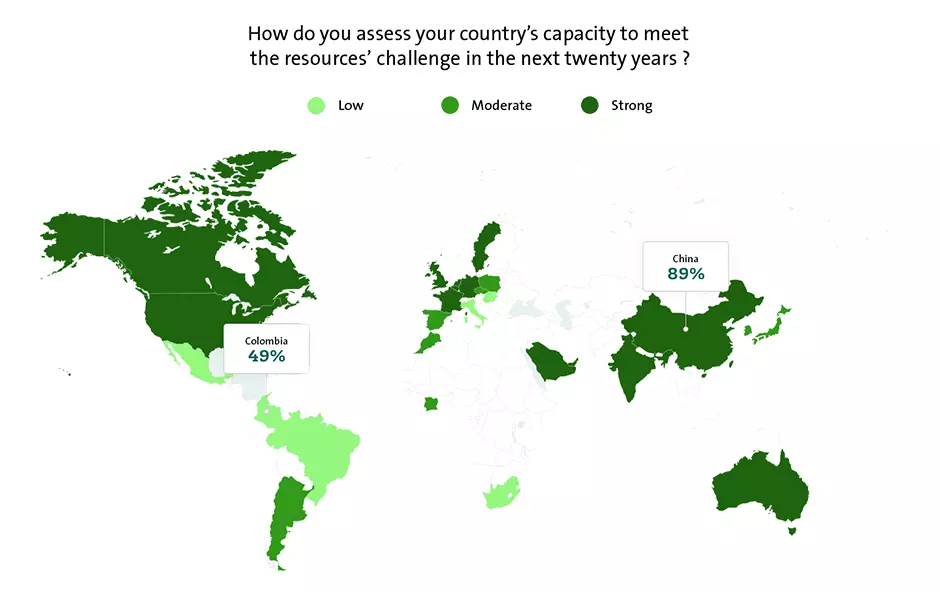
5. The 14,000 respondents primarily place their trust in human intelligence to meet the challenge of our resources.
In an overwhelming majority of countries, creativity (technological innovations, 85%) and individual responsibility (changes in individual behavior, 84%) are the two main levers in the paradigm shift, just ahead of funding (83%) and regulation (80%).

6. Although they believe people are capable of designing solutions, the world's citizens are generally cautious about the ability of their country to implement them on a large scale in the next 20 years.
- Probably because many countries have already taken the path or see that others have done so with some initial success, renewable energy and material and energy recovery from waste are the solutions considered the most credible in terms of implementation.
- Difficulty in thinking about the world differently or designing what we do not know, they doubt the capacity of their country to deploy urban agriculture, insect bio--refinery, or CO2 capture solutions to store it and / or reuse it.
It is up to companies and public actors to not only demonstrate the usefulness and performance of these in order to meet the challenge of our resources and support the 9 billion people who will populate our planet in 2050 but also think about the world in a different way.
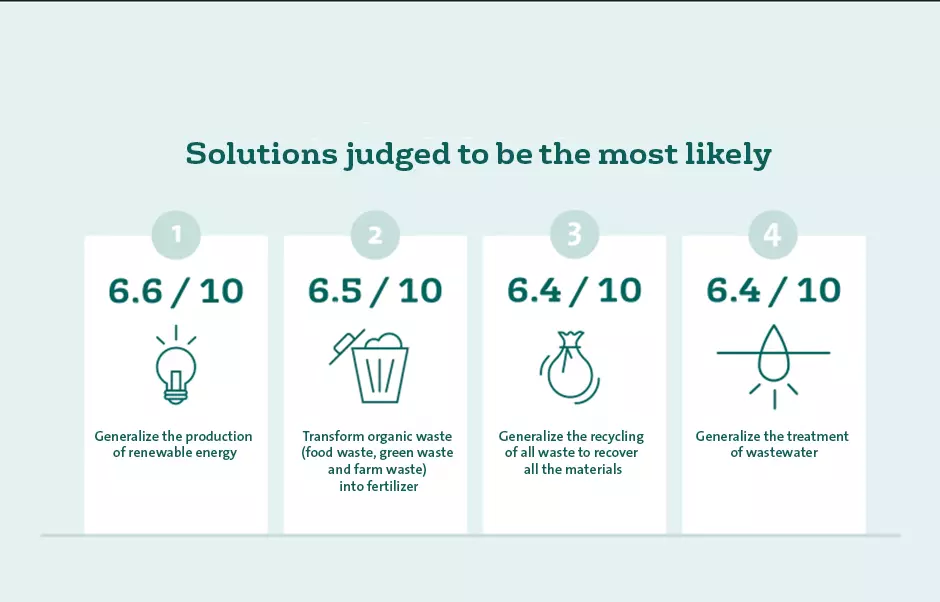
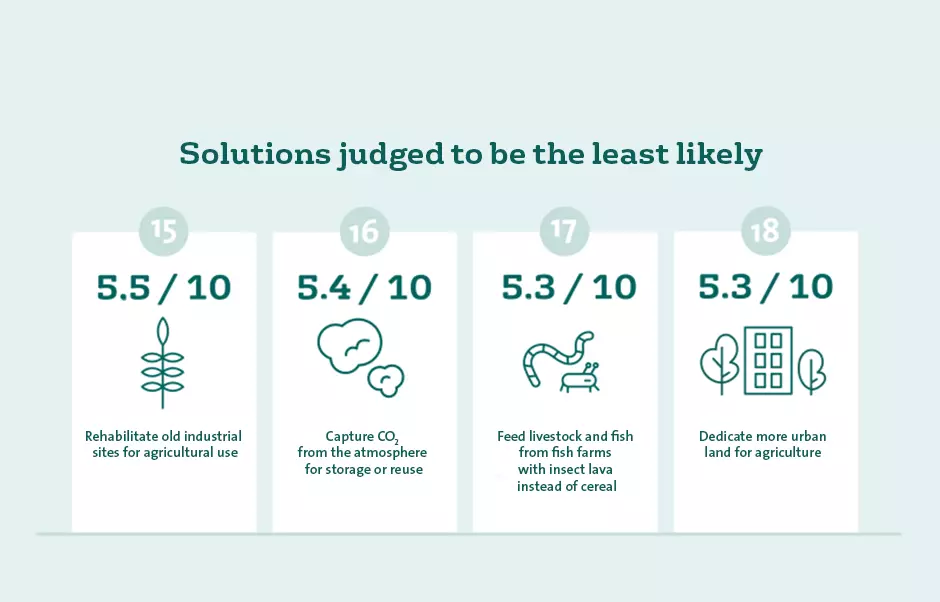
You can find all the results of the survey, country by country, by clicking here: challenge-of-resources.veolia.com/en


